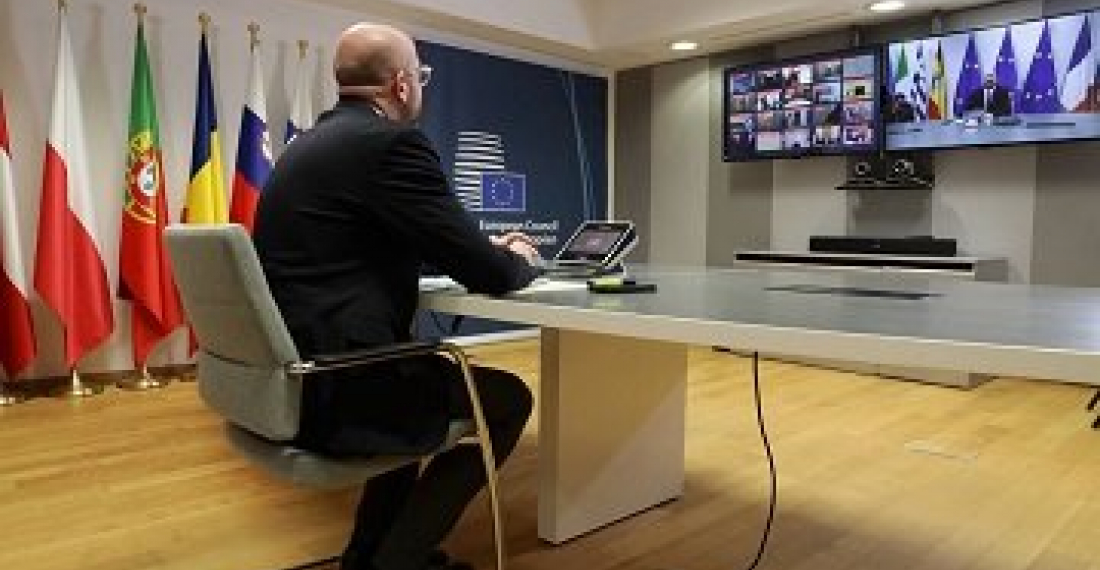The leaders of the twenty seven member states of the European Union on Tuesday (17 March) held a video conference, chaired by the president of the European Council, Charles Michel, to discuss EU actions responding to the COVID-19 outbreak. "We reaffirmed the need to work together and to do everything necessary to tackle the crisis and its consequences. The priority is the health of our citizens," said Charles Michel after the meeting.
To limit the spread of the virus globally, leaders agreed to reinforce the external borders by applying a coordinated temporary restriction of non-essential travel to the EU for a period of 30 days. Leaders also endorsed the guidelines proposed by the Commission on border management. “We need to ensure passage of medicines, food and goods and our citizens must be able to travel to their home countries," said President Michel after the meeting.
The leaders of the EU member states also discussed issues related to the provision of medical equipment and the need to share information and to develop a vaccine and make it available to all those in need. They discussed socio-economic measures that were needed to overcome the wider consequences of the crisis. They also discussed how to co-ordinate EU efforts to repatriate citizens who were stranded in third countries.
The EU member state leaders decided to postpone the ordinary European Council planned on 26 and 27 March. They agreed to hold another video conference next week.
source: commonspace.eu with the press service of the European Council.
photo: European Council Charles Michel chairing a virtual meeting of the leaders of the EU member states from the Council's headquarters in Brussels. (picture courtesy of the press service of the European Council)






